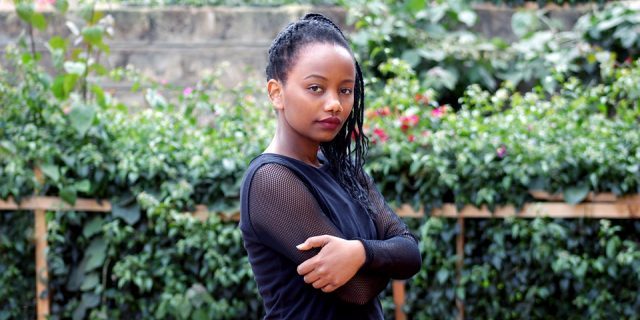
When she was a child, CJ was regularly woken up by her mother’s screams for help — her stepfather would be beating and yelling at her mother.
He abused CJ too, particularly when he was high. Once, CJ watched him threaten her mother with a gun.
Now, CJ is a young adult (and a patient at the Mount Sinai Adolescent Health Center, where I am a social worker) and the abuse has ended — but the hurt and trauma her stepfather caused still lingers. CJ is often angry, and when she hears someone raise their voice, she lashes out. She feels stuck because she hasn’t been able to forgive her stepfather, and angry because she wonders why her mother didn’t end the relationship before the abuse got so bad.
CJ is not alone. Every year, more than 3 million children witness domestic violence, typically against their mothers. They might watch their father beat up their mom, hear the abuse, or see the bruises and blood left behind. Some are even abused themselves. For young people, bearing witness to this violence can have personal, social, and psychological implications that are long-lasting and far reaching.
As a social worker at the Mount Sinai Adolescent Health Center, I see the repercussions of witnessing domestic violence every day. My patients, like CJ, find themselves angry. They have flashbacks, experience intrusive thoughts about the violence, suffer from depression, abuse substances, or feel guilt and shame — all symptoms of post-traumatic stress caused by their exposure to domestic violence as children.
The teens I work with cannot unsee the violence committed in their homes, but they can heal. Like many survivors, CJ wishes that the memories of her stepfather’s abuse would go away, and that the anger she feels would cease. As CJ’s social worker, I can’t make her memories disappear. She will have to live with them for the rest of her life.
What I can do is help CJ develop resilience and assist with her healing. Together, she and I can unpack her anger and come up with strategies to help her manage it and feel triggered less often. We can develop CJ’s emotional skills, so she doesn’t go into fight or flight mode every time someone raises their voice. She and I can talk about models for healthy relationships, so that she can avoid situations that lead to abuse.
Even though she witnessed incredible violence and abuse as a child, CJ — and the rest of my patients — are not broken beyond repair. Teenagers and young adults are resilient, and, with appropriate care, they can bounce back.
But without intervention, witnessing domestic violence all too often keeps young people from having a healthy childhood and adolescence. If it weren’t for the care provided by the social workers here, many of our patients would carry this trauma with them into adulthood.
There are many reasons to commit to ending domestic violence, and CJ’s case presents just one more: because abuse impacts more than just the victim.
Names have been changed to protect patient privacy. This post was originally published on our Medium page.
Rachel Colon, LCSW, is a primary care social worker at the Center and has over 10 years of experience working with survivors of domestic violence.
The Mount Sinai Adolescent Health Center is located in New York City. It provides comprehensive, confidential, judgment free health care at no charge to over 10,000 young people every year. This column is not intended to provide medical advice, professional diagnosis, opinion, treatment or services to you or to any other individual, only general information for education purposes only.
